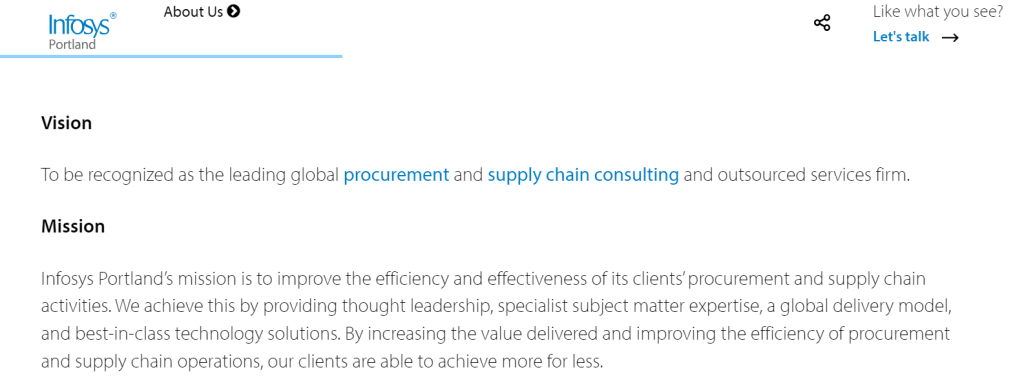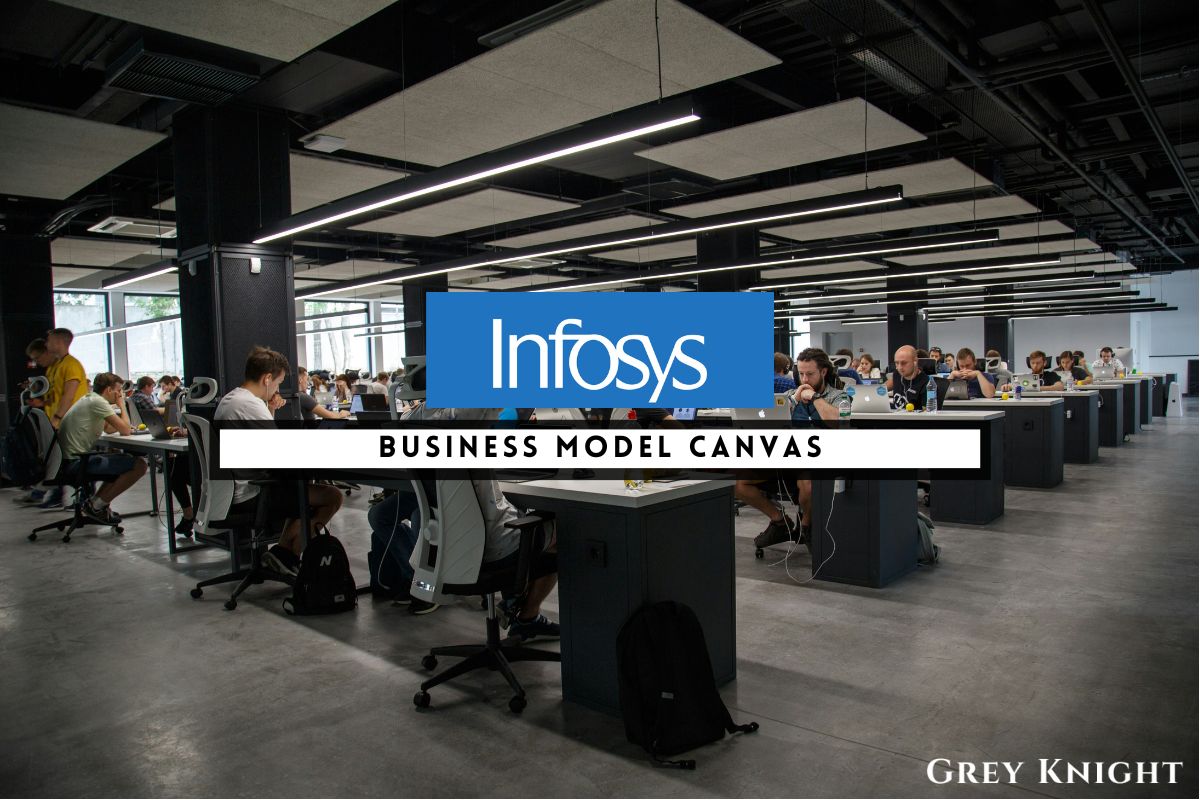Table of Contents
ToggleA Brief History of Infosys
Infosys Limited is an Indian multinational corporation that provides business consulting, information technology, and outsourcing services. It was founded in 1981 by Narayan Murthy and a group of six other engineers in Pune, India. The company started as a small software development firm but quickly grew to become one of the largest IT companies in India.
In the 1990s, Infosys began to expand internationally, opening offices in the United States and other countries. This move allowed the company to take advantage of the growing global demand for IT services. In 1999, Infosys became the first Indian company to be listed on the NASDAQ stock exchange.
Throughout the 2000s and 2010s, Infosys continued to grow and expand its services, becoming a leader in the IT consulting industry. The company also became known for its strong focus on corporate governance and ethical business practices.
Today, Infosys is one of the largest IT services companies in the world, with operations in over 50 countries and a diverse range of clients across various industries. The company continues to innovate and adapt to the ever-changing technological landscape, remaining a major player in the global IT services industry.
Who Owns Infosys?
Infosys Limited is a publicly-traded company, which means it is owned by its shareholders. As of the most recent data available, the top 10 shareholders of Infosys Limited are as follows:
1. Life Insurance Corporation of India
2. Norges Bank
3. Government of Singapore
4. Vanguard Group Inc.
5. State Street Corporation
6. HDFC Trustee Company Limited
7. Abu Dhabi Investment Authority
8. Aberdeen Standard Investments (Asia) Limited
9. BlackRock Inc.
10. Societe Generale
These shareholders collectively own a significant portion of the company and have a significant influence on its operations and decision-making. As a publicly traded company, Infosys Limited is subject to regulations and reporting requirements that ensure transparency and accountability to its shareholders and the investing public.
Infosys Mission Statement

The mission statement of Infosys Limited is to help clients with their digital transformation journeys by providing innovative and high-quality technology solutions. The company aims to empower businesses to navigate the complexities of the digital age and to be a trusted partner that drives their success. Infosys is committed to creating long-term value for its stakeholders and employees, while contributing positively to the communities in which it operates. This mission is supported by the company’s core values, including integrity, excellence, and respect for the individual.
How Infosys Makes Money?
Infosys Limited operates as an information technology services company that delivers consulting and systems integration, business process outsourcing, and software products to its clients. The company makes money primarily through service contracts with clients, which provide a majority of its revenue stream. This includes developing and implementing software solutions, providing maintenance and support services, and offering consulting and training services. Additionally, Infosys generates revenue from the sale of software products and through its business process outsourcing services. Overall, the company’s business model focuses on providing innovative technology solutions and services to businesses across various industries, generating revenue through a combination of service contracts and product sales.
Infosys Business Model Canvas
The Business Model Canvas is a strategic management tool that allows organizations to visualize, design, and analyze their business model. It provides a holistic view of how a company creates, delivers, and captures value. With 9 key building blocks, the Canvas serves as a comprehensive framework to understand and map out the intricacies of a business.
Customer Segments:
– Enterprises and large corporations seeking digital transformation.
– Small and medium businesses looking for technology solutions.
– Government agencies and public sector organizations.
– Global clients across various industries.
– Start-ups and entrepreneurs requiring IT services.
Value Propositions:
– Tailored technology solutions to meet specific business needs.
– Cutting-edge digital transformation services.
– Innovation and expertise in emerging technologies.
– Quality assurance and advanced data security measures.
– Scalable and flexible solutions to adapt to market changes.
Channels:
– Direct sales and marketing teams.
– Online platforms and website.
– Partner and reseller networks.
– Trade shows and industry events.
– Referral programs and customer testimonials.
Customer Relationships:
– Long-term partnerships and strategic alliances.
– Proactive customer support and personalized interactions.
– Continuous communication and feedback mechanisms.
– Regular updates and value-added services.
– Robust customer engagement and loyalty programs.
Revenue Streams:
– Project-based service fees and customization charges.
– Subscription and maintenance contracts.
– Licensing and software usage fees.
– Consultation and advisory fees.
– Revenue sharing and joint ventures.
Key Resources:
– Skilled workforce and technological expertise.
– Intellectual property and patents.
– Robust IT infrastructure and data centers.
– Strategic partnerships and alliances.
– Financial resources for investments and R&D.
Key Activities:
– Research and development of new technologies.
– Customization and integration of software solutions.
– Project management and implementation services.
– Quality assurance and testing procedures.
– Continuous training and development for employees.
Key Partners:
– Technology vendors and hardware suppliers.
– Cloud service providers and data centers.
– Consulting firms and industry experts.
– Educational institutions for talent acquisition.
– Industry associations and regulatory bodies.
Cost Structure:
– Employee salaries and benefits.
– R&D and innovation expenditures.
– Marketing and sales expenses.
– Technology infrastructure and maintenance costs.
– Legal and regulatory compliance costs.
Infosys’s Competitors
Infosys Limited faces tough competition in the IT consulting and services industry from several key competitors. Some of the top competitors of Infosys Limited include Tata Consultancy Services, Wipro Limited, Cognizant Technology Solutions, Accenture, and HCL Technologies. These companies all offer a range of IT consulting, business process outsourcing, and software development services, and compete fiercely for market share and customer contracts in the global technology services industry.
Infosys SWOT Anaylsis
Strengths:
1. Strong global presence with operations in over 40 countries.
2. Diversified range of services including IT consulting, software development, and business process outsourcing.
3. Strong focus on innovation and technology, with significant investments in research and development.
4. Solid financial performance and strong revenue growth over the years.
Weaknesses:
1. Dependence on a few key clients for a significant portion of revenue.
2. Vulnerable to currency exchange rate fluctuations due to global operations.
3. High employee turnover rates, leading to potential disruption in project delivery.
Opportunities:
1. Growing demand for digital transformation and cloud services.
2. Expansion in emerging markets such as Asia and Latin America.
3. Collaboration with technology start-ups and industry partnerships for new business opportunities.
Threats:
1. Intense competition in the IT services industry from global players and niche providers.
2. Potential impact of economic downturns and geopolitical tensions on client spending.
3. Regulatory changes in key markets could affect operations and profitability.
Concluding Analysis
In conclusion, Infosys Limited has remained a driving force in the global IT industry through its innovative business model. With a focus on digital transformation, automation, and artificial intelligence, the company has been able to stay ahead of the competition and deliver value to its clients. From my perspective as an analyst, I believe that Infosys has a bright future ahead, as it continues to adapt to the ever-changing technological landscape and expand its global footprint. With a strong leadership team and a commitment to excellence, I am confident that Infosys will continue to thrive and remain a key player in the IT industry for years to come.
Additional Resources
To keep learning and advancing your career, we highly recommend these additional resources:
Business Model Canvas of The Top 1,000 Largest Companies by Market Cap in 2024
A List of 1000 Venture Capital Firms & Investors with LinkedIn Profiles
Peter Thiel and the 16 Unicorns: The Legacy of Thiel Fellowship












